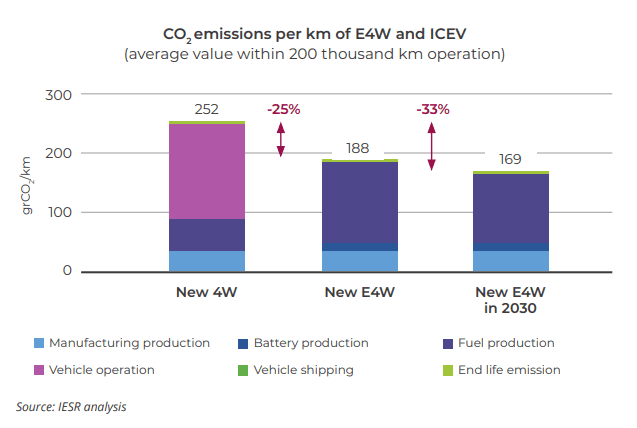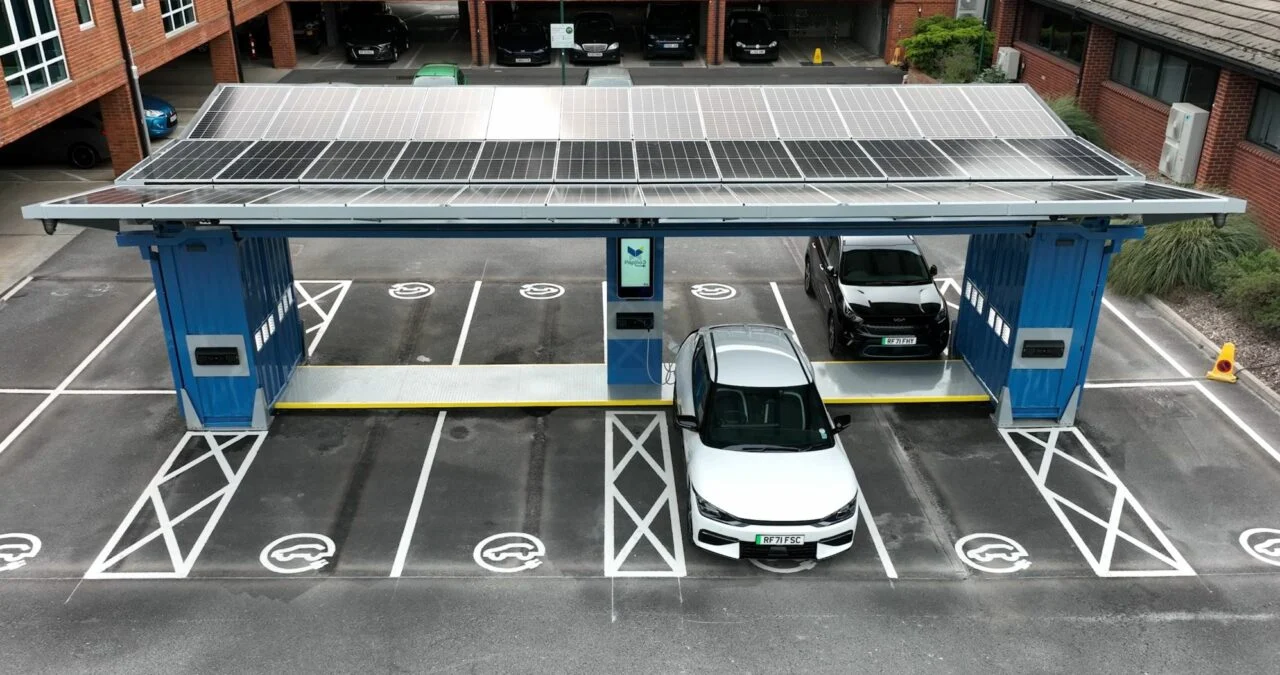Seiring dengan meningkatnya tren penggunaan kendaraan listrik di berbagai negara, termasuk Indonesia, muncul pula berbagai informasi yang belum tentu benar. Banyak dari informasi tersebut akhirnya berkembang menjadi hoaks yang membuat sebagian orang ragu untuk beralih ke mobil listrik. Padahal, dengan memahami fakta sebenarnya, kita bisa melihat bahwa sebagian besar kekhawatiran itu tidak berdasar.

1. Mobil Listrik Gampang Terbakar
Salah satu hoaks yang sering terdengar adalah anggapan bahwa mobil listrik mudah terbakar karena baterai lithium dianggap rentan terhadap panas atau benturan. Padahal, mobil listrik modern telah dilengkapi sistem keamanan canggih seperti pengaturan suhu otomatis, pelindung fisik, dan pemutus arus saat terjadi kegagalan sistem. Faktanya, menurut National Fire Protection Association (NFPA) 2024, hanya sekitar 25 dari setiap 100.000 EV yang mengalami kebakaran tiap tahun. Sebaliknya, kendaraan bensin mencatat sekitar 1.500 kebakaran per 100.000 kendaraan per tahun, berarti risikonya sekitar 60 kali lebih tinggi dibandingkan EV.
Studi AutoinsuranceEZ yang menganalisis data dari National Transportation Safety Board (NTSB) dan Bureau of Transportation Statistics (BTS) memperkuat temuan ini, dengan angka kebakaran EV sekitar 25 per 100.000 kendaraan, sedangkan kendaraan bensin mencapai 1.530 per 100.000 kendaraan. Meski lebih jarang, kebakaran EV bisa lebih sulit dipadamkan karena potensi “thermal runaway” pada baterai lithium-ion. Namun, produsen telah menerapkan sistem manajemen baterai canggih dan desain modul tersegmentasi untuk meminimalkan risiko tersebut.
2. Mobil Listrik Nggak Ramah Lingkungan Karena Pakai Listrik Batu Bara
Isu kedua yang kerap muncul adalah mobil listrik dianggap tidak ramah lingkungan karena sumber listriknya masih dominan dari batu bara. Memang, sebagian besar listrik di Indonesia saat ini masih berasal dari pembangkit berbahan bakar fosil. Namun, dari sisi efisiensi energi, mobil listrik tetap jauh lebih bersih dibanding mobil bensin.

Gambar 2 Emisi CO2 per kilometer dari E4W dan ICEV (nilai rata-rata dalam penggunaan sejauh 200 ribu km) Sumber: IESR
Mobil listrik (Electric Vehicle/EV) saat ini menghasilkan emisi karbon yang lebih rendah per kilometer dibandingkan mobil bensin atau diesel (ICEV). Secara nasional, mobil listrik (electric four wheelers/E4W) menghasilkan emisi sekitar 25% lebih rendah dibandingkan mobil konvensional (four wheelers/4W). Namun, karena sebagian besar pasokan listrik masih berasal dari energi fosil, penurunan emisi ini diperkirakan hanya akan bertambah sedikit pada tahun 2030 sekitar 8% jika efisiensi kendaraan tidak mengalami perubahan. Artinya, seberapa bersih mobil listrik sangat bergantung pada seberapa bersih sumber listrik yang digunakan.
Pada mobil bensin atau diesel, lebih dari 80% emisi berasal dari penggunaan bahan bakar selama masa pakai kendaraan. Mobil listrik memang menghasilkan emisi yang jauh lebih rendah saat digunakan sekitar 70% dari total emisi seumur hidup namun emisi dari proses produksi, terutama pembuatan baterai, tetap menyumbang sekitar 30%.
Selain lebih rendah emisi, mobil listrik juga lebih efisien dalam penggunaan energi. Menurut laporan Telkomsel, kendaraan listrik memiliki efisiensi energi yang lebih tinggi dibandingkan dengan kendaraan bermesin pembakaran dalam. Efisiensi energi kendaraan listrik bisa mencapai 90%, jauh lebih tinggi dibandingkan kendaraan berbahan bakar minyak yang hanya sekitar 20–30%. Artinya, energi yang digunakan oleh mobil listrik jauh lebih banyak yang benar-benar dimanfaatkan untuk menggerakkan kendaraan, sementara pada kendaraan konvensional sebagian besar energi hilang sebagai panas.
Mobil listrik memang lebih ramah lingkungan dibandingkan kendaraan konvensional, terutama dalam hal emisi dan efisiensi saat digunakan. Namun untuk benar-benar menekan emisi secara maksimal, diperlukan peningkatan besar dalam penggunaan energi terbarukan dalam pembangkit listrik. Selain itu, konversi mobil berbahan bakar fosil menjadi mobil listrik juga bisa menjadi solusi yang efisien untuk mengurangi emisi secara signifikan.
3. Perawatan dan Ganti Baterai Mahal Banget
Isu mahalnya perawatan dan penggantian baterai juga sering menjadi alasan orang ragu pakai mobil listrik. Padahal, kendaraan listrik justru minim perawatan karena tidak perlu ganti oli, servis mesin, atau tune-up seperti mobil biasa. Umur baterainya pun cukup panjang, rata-rata bisa mencapai 8 hingga 10 tahun. Selain itu, produsen mobil umumnya memberikan garansi panjang untuk baterai. Biaya penggantiannya memang tidak murah saat ini, tapi tren harga terus menurun seiring perkembangan teknologi dan peningkatan volume produksi.
Tren penurunan harga baterai mobil listrik dalam 10 tahun terakhir benar-benar mencengangkan. Bayangkan saja, di tahun 2013, harga baterai mobil listrik masih sekitar USD 780 per kWh (sekitar Rp12,5 juta dengan kurs Rp16.000 per USD). Jadi, kalau mobil punya kapasitas baterai 40 kWh, total harganya bisa tembus lebih dari USD 31.000 (sekitar Rp496 juta) nyaris setara harga mobil baru!
Namun, kondisi tersebut telah berubah drastis. Pada tahun 2024, harga rata-rata baterai lithium-ion turun menjadi sekitar USD 115 per kWh (sekitar Rp1,84 juta), sehingga untuk kapasitas 40 kWh, total biayanya sekitar USD 4.600 (sekitar Rp73,6 juta). Penurunan ini terjadi karena teknologi makin canggih, produksi makin efisien, dan permintaan baterai terus meningkat di seluruh dunia. Artinya, walau harga penggantian baterai masih terasa mahal hari ini, ke depannya akan makin terjangkau. Jadi, kekhawatiran soal biaya perawatan sebenarnya sudah mulai bisa dikesampingkan karena tren menunjukkan arah yang positif.

4. Jarak Tempuh Mobil Listrik Itu Pendek Banget
Masih ada yang berpikir bahwa mobil listrik cuma bisa dipakai dalam kota karena jarak tempuhnya terbatas. Anggapan ini sudah nggak relevan lagi. Mobil listrik modern saat ini bisa menempuh 300 hingga 500 kilometer dalam sekali pengisian daya penuh. Itu lebih dari cukup untuk kebutuhan harian, bahkan perjalanan luar kota. Ditambah lagi, infrastruktur SPKLU (Stasiun Pengisian Kendaraan Listrik Umum) terus bertambah, baik di kota-kota besar maupun rest area jalan tol, membuat perjalanan jauh jadi lebih nyaman.
Mobil listrik memang bukan tanpa tantangan. Tapi, bukan berarti segala kekurangannya harus diperbesar dengan informasi yang tidak akurat. Teknologi ini punya potensi besar dalam menurunkan emisi karbon dan mengurangi ketergantungan pada bahan bakar fosil. Jika ditopang dengan kebijakan yang tepat dan kesadaran publik yang meningkat, mobil listrik bisa menjadi solusi mobilitas masa depan yang lebih bersih dan efisien.

